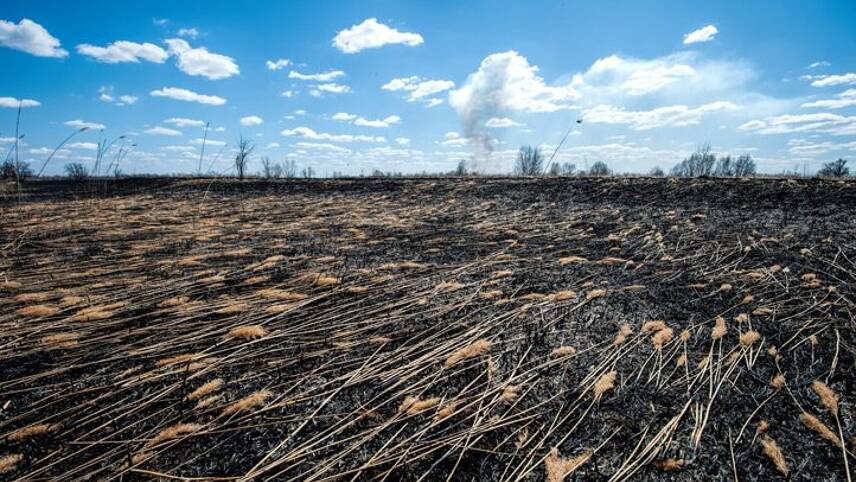Register for free and continue reading
Join our growing army of changemakers and get unlimited access to our premium content

On average
The Bankrolling Extinction report has claimed that 50 global banks, including Bank of America, Citigroup, JP Morgan Chase, Mizuho Financial, Wells Fargo, BNP Paribas, Mitsubishi UFJ Financial, HSBC, SMBC Group and Barclay, together provided loans and underwriting worth more than $2.6 trn to the food, forestry, mining, fossil fuels, infrastructure, tourism and transport and logistics sectors in 2019. According to the report, these industries are primary drivers of biodiversity loss and overfishing.
On average, each of the 50 banks was linked $52bn in finance that is causing biodiversity loss risk.
Professor Kai Chan, University of British Columbia and a leading author of the IPBES Global Assessment report said: A global sustainable economy sits at the centre of humanity’s much-needed transformation to meet the climate and ecological crises. And at the centre of that sit the banks and the finance institutions whose investments power development around the globe.
“Imagine a world in which projects can only raise capital when they have demonstrated that they will contribute meaningfully and positively to restoring the planet’s bounty and a safe climate for all? That’s the future this report envisions and builds toward.”
Banking on change
In response to the findings, the report is calling for banks to disclose and reduce their impact on nature by halting the finance for initiatives that cause deforestation, overfishing and ecosystem destruction.
Many banks have recently taken disclosure steps for their climate impacts, with the likes of Morgan Stanley committing to measuring and disclosing the environmental impact of its investment portfolio and loan offerings.
Additionally, a report from non-profit InfluenceMap analysed how closely the portfolios of 15 of the world’s largest finance firms aligned with the Paris Agreement’s two pathways, and the ways in which these businesses have voted in climate-related resolutions and engaged in climate-related lobbying.
InfluenceMap found that these firms are engaging the companies they invest with on climate issues, but without using climate models such as scenario analysis in line with the Paris Agreement.
Earlier this year, HSBC partnered with Pollination to launch what it is describing as the first large-scale investment fund focused solely on nature conservation and restoration. The fund, due to launch next year, will aim to raise $1bn to finance “a diverse range of activities that preserve, protect and enhance nature over the long-term, and address climate change”.
Elsewhere, AXA and BNP Paribas are among a group of 10 major banks backing a new initiative intended to help corporates measure, disclose and minimise their nature-related financial risks.
So far, 62 members have signed up to support the TNFD. They include: AXA; BNP Paribas; DBS Bank Ltd; Coöperatieve Rabobank U.A.; FirstRand Group Ltd; International Finance Corporation, Standard Chartered; Storebrand Asset Management; Yes Bank and the World Bank. Each of these organisations will contribute to the development of the framework, and be among the first adopters.
Agribusiness
In related news, a new report from CDP has found that standards across the value chains of key agricultural and forestry sectors aren’t of sufficient quality to half deforestation. The report, which follows on from CDP’s 2019 Investor Research on deforestations ranks 29 of the largest and highest impact palm oil, timber, soy and cattle traders and producers on managing deforestation risks.
The report found that cattle and soy companies are lagging behind the standards imposed on palm oil and timber in regards to disclosure and traceability. This is despite cattle being 400 times more land-intensive than palm oil, and soy more than eight times more intensive.
With the agricultural and forestry sectors responsible for over 80% of deforestation globally, the report warns that many consumer-facing multinational businesses will need to improve supply chain management in order to meet public deforestation targets.
CDP’s head of investor research Carole Ferguson: “The companies assessed in this report are key suppliers to the Consumer Goods sector covered in our previous report. What is clear from this research is that if FMCGs are relying on this part of the supply chain to meet their net-zero deforestation ambitions – a lot more work needs to be done. Bold and urgent action from these producers is the critical first step in tackling deforestation throughout the supply chain.”
Matt Mace


So where’s the call for pensions, investment houses and even individual investors to ditch the banks from their portfolios?
Given the hysteria about ditching oil & gas companies over the so called Climate Emergency it seems only fair that business that are actively destroying the environment should be tarred with the same brush